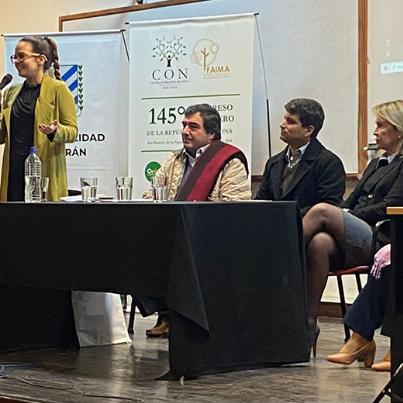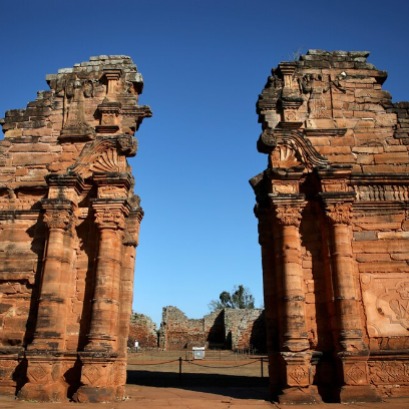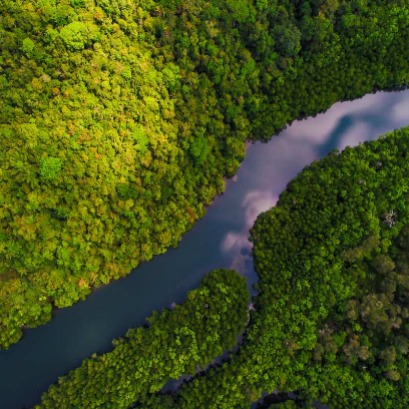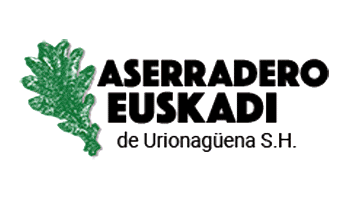
Finalizo el 145° Congreso de FAIMA que se realizo en Oran, Salta
El evento que organizo la Federacion Argentina de la Industria Maderera y Afines (FAIMA) conto con la participacion de las Camaras que agrupa en todo el pais, y en ese marco se analizaron diversas tematicas y actualidades de la foresto industria nacional.
Al respecto, el presidente de APICOFOM, Guillermo
Fachinello, destaco que “realmente fue un congreso muy federal en un lugar como
Oran, donde hasta ahora no habiamos realizado este evento tan importante.
Estuvo muy bien organizado y se analizaron y debatieron temas muy importantes
para el sector, como el manejo y preservacion de los bosques nativos, la
actualidad de los bosques implantados y la de los bienes finales”.
“Ademas, hubo un panel sobre Carbono que sirvio para
despejar muchas dudas a la vez que genero otras inquietudes y nos convoca a
seguir trabajando en la materia; y finalmente el tema paritario fue un espacio
de mucho debate, con gente que presento buenos informes. Como siempre, para el
sector es muy importante seguir cuidando las fuentes de trabajo y esperamos
poder tener buen dialogo con los gremios para poder seguir trabajando”.
Luego, Fachinello
destaco que “APICOFOM y AMAYADAP planteamos la necesidad de fortalecer la
presencia de las Pymes en CONFIAR ya que sentimos que no estamos tan
representados en ese espacio y consideramos necesario debatir el tema”, y
afirmo que hay acuerdo para continuar ese analisis en los proximos encuentros.

IT MAY INTEREST YOU
 The Relict of San Ignacio, a Treasury in Misiones
The Relict of San Ignacio, a Treasury in Misiones
In Argentina, the closed has a minimum presence, but of enormous value: the closed of San Ignacio, in Misiones. There, scientific research has demonstrated their unique wealth in Flora and their role as a refuge for endemic species.
 New study confirms that reforesting the tropics is up to 9 times more effective in cooling the planet than in cold regions, tropical trees cool more and renounce
New study confirms that reforesting the tropics is up to 9 times more effective in cooling the planet than in cold regions, tropical trees cool more and renounce
The plantation in the tropics has the greatest positive impact. Trees in warm and humid areas cool the weather and are more resistant to fire. Evapotranspiration (similar to sweat in humans) cools air and earthly surface.
 What is the origin of the Amazon? Part of the answer could be related to the asteroid that ended the dinosaurs
What is the origin of the Amazon? Part of the answer could be related to the asteroid that ended the dinosaurs
On Amazon Day, which is celebrated every year on September 5, discover some of the factors that have joined to form one of the most complex ecosystems on the planet.





















